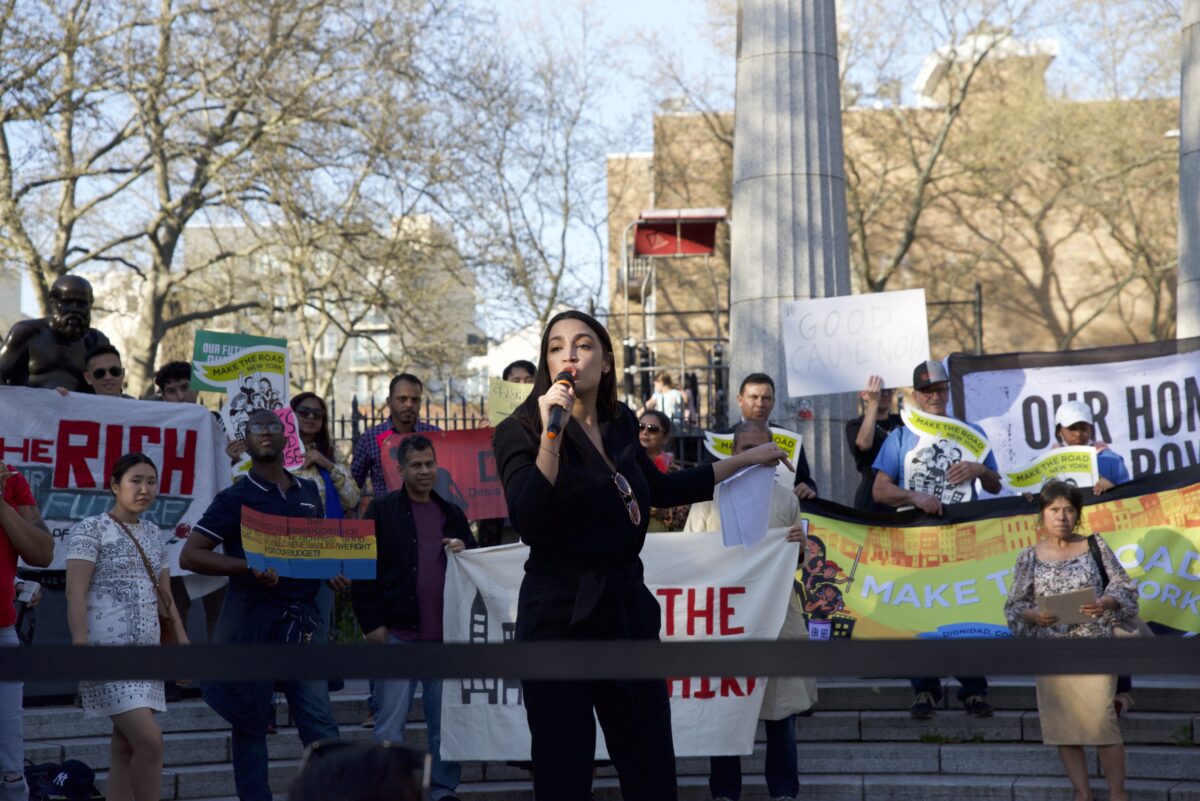AOC Rallies for Progressive Priorities in State Budget
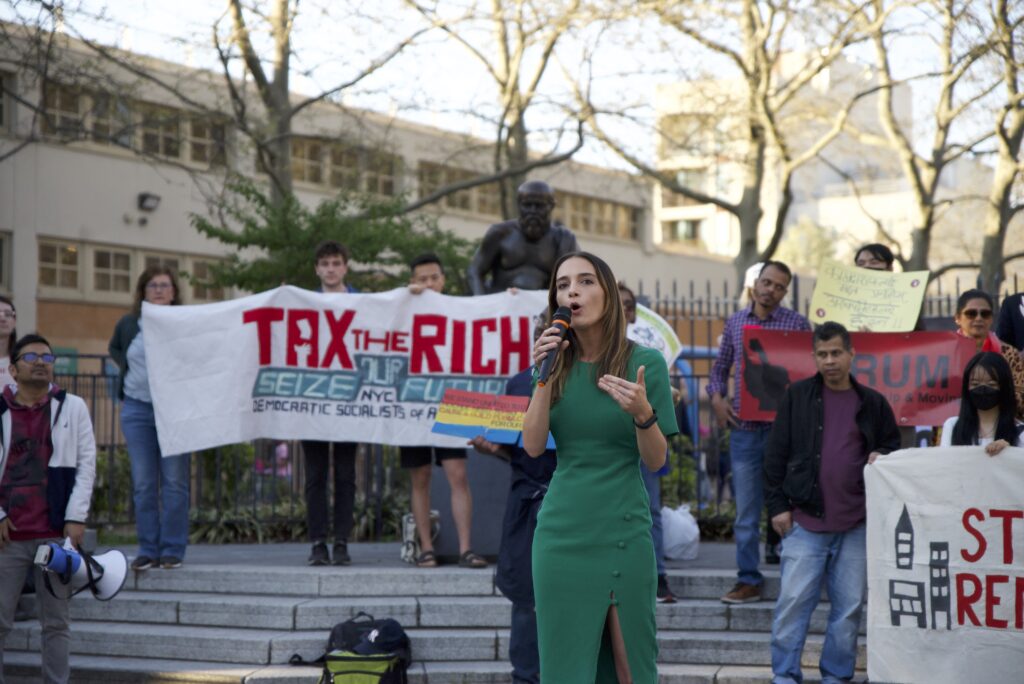
State Senator Julia Salazar, who represents swaths of North Brooklyn, sponsored the Good Cause bill. Photo by Iryna Shkurhan.
By Iryna Shkurhan | ishkurhan@queensledger.com
“Welcome to the People’s Republic of Astoria,” declared Congresswoman Alexandria Ocasio-Cortez at the April 12 rally for progressive legislation to be included in the delayed state budget.
The congresswoman was joined by other Queens progressive officials to advocate for tenant protection in the form of Good Cause legislation, and investment in public renewable energy sources. A stronger commitment to bail reform and closing down Rikers Island jail were also embraced in the shared progressive vision for the city and state.
Dozens of local residents and other borough supporters gathered to chant, “Fight fight fight, housing is a human right” as representatives from Democratic Socialists of America and the Working Families party led the event at Athens Square on Wednesday evening.
“It’s become abundantly clear that there are two competing visions for what the future of New York would look like. One vision that’s led by the governor and profit and corporations, and another vision that’s led by every day New Yorkers like us by our movement,” said State Senator Kristen Gonzalez, who covers swaths of North Brooklyn and Astoria.
The Good Cause Eviction bill, first introduced in 2019, would make it illegal for landlords to end tenancy, unless they had good reason, such as failing to pay rent or breaking the lease. It would also create a rent-hike cap of no more than three percent year to year, or more than 150 percent of the Consumer Price Index.
Currently, if you do not live in a rent-controlled building there is no limit of how much your landlord can raise your rent as long as they provide advanced notice. They also do not need to explain why tenancy is being terminated.
Left in an idling state in Albany since its introduction, the recent budget expected to be delivered late by Governor Hochul has reinvigorated advocacy for its inclusion.
Since the state’s pandemic-induced eviction moratorium expired on January 15, 2022, 4,400 households have been removed from their homes in NYC, according to city data. In Northwest Queens, this past February marked the second highest median rent of all time. All while homeless rates have reached Great Depression levels in recent years.
“It doesn’t seem like the landlords understand what the people have been through,” said Jay Titus, 54, in an interview with the Queens Ledger. He traveled from his home in Coney Island to attend the rally in Astoria’s Athens Square.
He says that people are still feeling the impact of the pandemic, and the concurrent destabilization in people’s lives should be considered by politicians enacting new housing legislation.
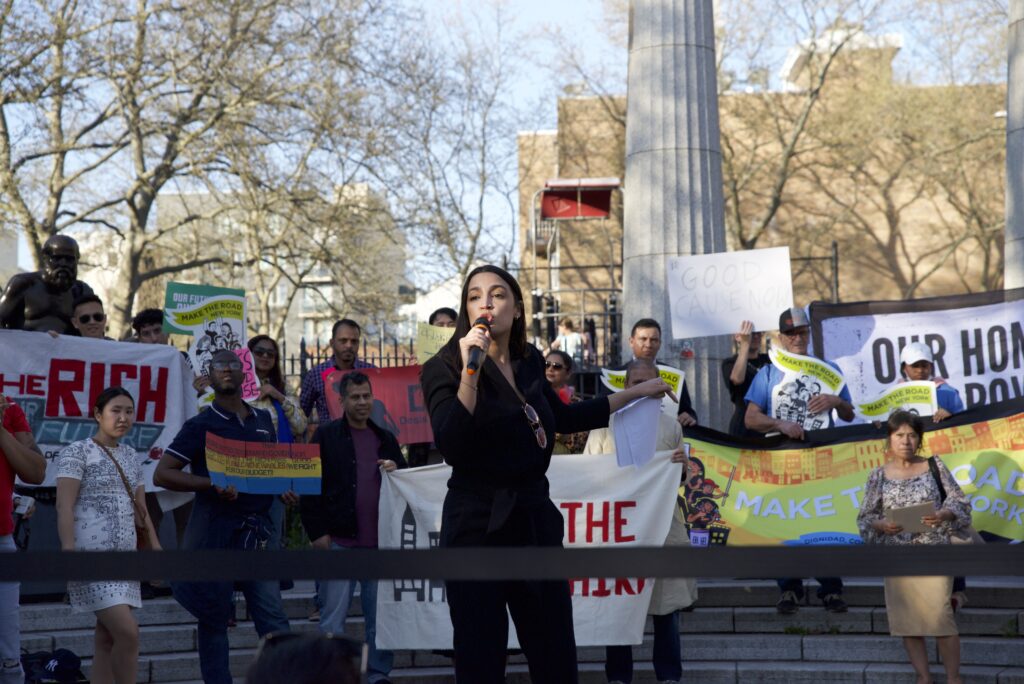
Congresswoman Alexandria- Ocasio Cortez was the first progressive elected official to speak at the rally in Astoria. Photo by Iryna Shkurhan.
“So when we talk about fighting for the people, fighting to pass Good Cause Eviction is essential,” said Congresswoman Ocasio-Cortez, who urged Governor Hochul to include the legislation in her budget.
Julia Cabrera, a tenant organizer from Make the Road New York, and Queens resident for the past thirty years, spoke about her experience dealing with a drastic rent hike at the rally.
“My insurgency began when the small house changed owners a few years ago,” said Cabrera in Spanish. Darius Khalil Gordon, Executive Director of the Metropolitan Council on Housing, stood alongside to translate her speech to English.
In the five years since new owners took her building, she said her rent increased by $1,100 which brought the price up to $3,200. The new cost is no longer affordable for her and the other three families she shares the space with. It is also a drastic increase from the cost she grew accustomed to paying for over two decades.
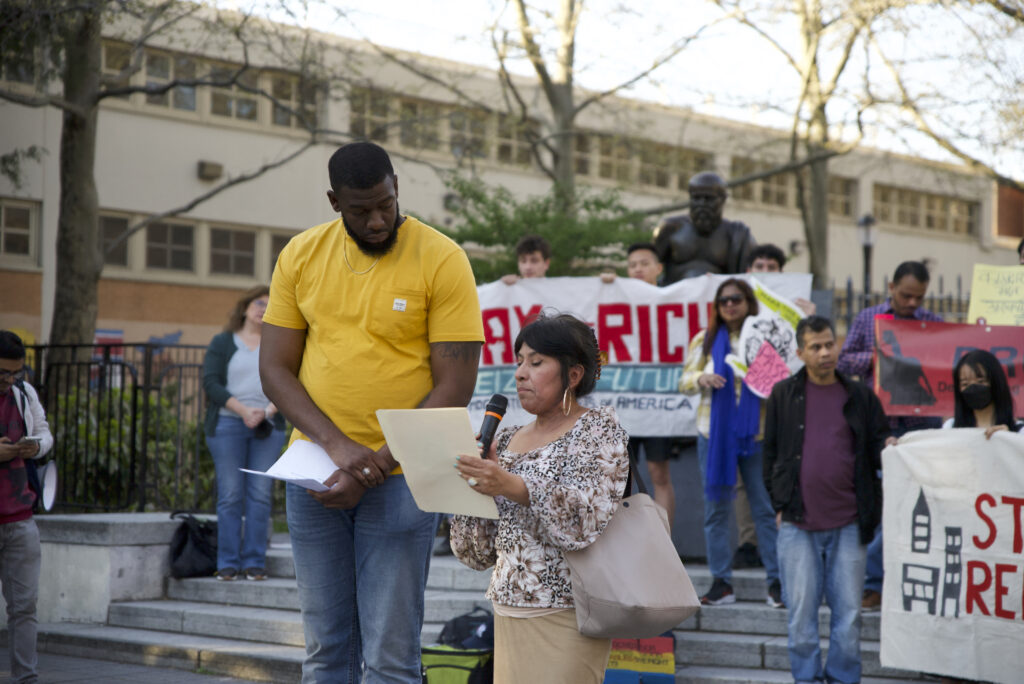
Tenant organizer Julia Cabrera alongside Darius Khalil Gordon, who translated her speech from Spanish. Photo by Iryna Shkurhan.
Cabrera says she was the victim of a physical and verbal attack at the hands of her landlord that hospitalized her. It followed her complaints of a lack of hot water in her unit as well as 16 other violations that she reported to 311. She says that she is still dealing with injuries from the push.
“The greatest concern is that the owner will continue to retaliate against her and the other tenants in her apartment,” said Gordon.
City Council Member Julie Won, who represents western Queens, said that housing eviction caseloads in the thousands have hit her desk since she took office a year ago. All are similar to Julia’s story. She says that the rising cost of utilities additionally burdens renters who are already overwhelmed with rent hikes.
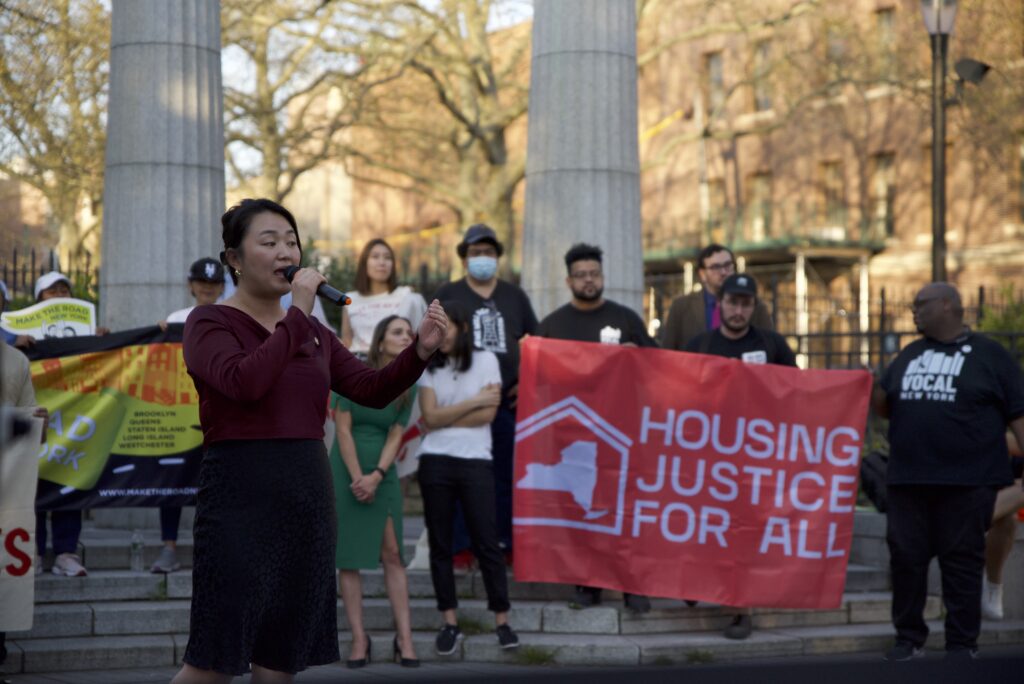
City Council Member who represents western Queens, Julie Won, advocated for Good Cause to be included in the state budget. Photo by Iryna Shkurhan.
“We have so many people in Astoria, who cannot afford yet another speculator buying up an apartment building on the loan agreements that necessitate the eviction of long term tenants, they can’t afford that,” said Assemblymember Zohran Mamdami, who represents Astoria and Ditmars. “That is the recipe for eviction. And that is the recipe for homelessness.”



